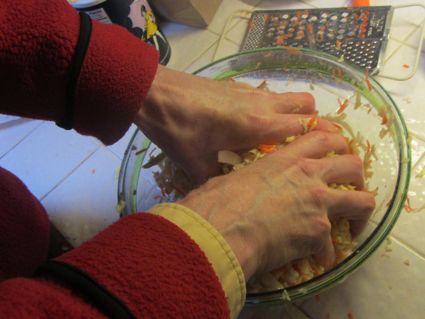Lady M’Leod asked, if no man was naturally good? — Johnson. ‘No, madam, no more than a wolf.’ — Boswell. ‘Nor no woman, sir?’ — Johnson. ‘No, sir.’ — Lady M’Leod started at this, saying, in a low voice, ‘This is worse than Swift.’*
In our society, it is widely fashionable to think that human beings are basically good, and, to go along with that, that we are rational beings. Some people, mostly traditional Christians, hold an unfashionable view which is opposed to this, that human beings are marked by original sin. Most of those who hold this unfashionable view would also assert that rationality is not the first thing that strikes you when you look at human actions and moral decisions. But this unfashionable view is held by a minority of people in our society, and is dismissed by religious liberals like me.
Why do so many of us believe, against a great deal of evidence to the contrary, that human beings are good and rational? I suspect many of us hold on to this irrational belief merely because we don’t want to have anything to do with the unfashionable Christian belief in original sin. We don’t want to be accused of being “too Christian,” or accused of being “religious”; so we reject original sin, and without wondering about other possible alternatives, we irrationally believe in the myth that humans are good and rational. And this irrational belief of ours is strengthened by the myths promoted by economists: that we are each a rational actor making rational economic choices, and the general trend of our economic choices is to improve the human condition. Our inability to address global climate change and overpopulation puts the lie to the economists’ myths; yet we continue to believe them.
Samuel Johnson said humans are not naturally good, “no more than a wolf.” Given what now we know about how well wolves treat each other within the wolf pack, Johnson’s comparison overestimates human goodness; at least, his comparison overestimates human goodness in our society in which individualism is valued more highly than communal endeavor. At least the wolf can and will do good to other members of the pack; individualistic humans reject allegiance to the pack, and won’t do good to other humans except when it serves their own private and personal interests.
But we need not feel we have to choose between the unfashionable traditional Christian myth of original sin on the one hand, and on the other hand the combination of two myths, the Romantic myth of natural human goodness and the Enlightenment myth of human rationality. I think it’s time for a new myth. But I don’t yet know what it is.
———
* The Journal of a Tour to the Hebrides, with Samuel Johnson, LL.D. by James Boswell, 1786 (ed. R. W. Chapman [Oxford: Oxford University Press, 1970], p. 300).


